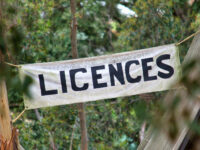Last week was Fair Dealing Week, a chance for a wide range of Canadians – educators, students, librarians, archivists, and creators – to celebrate the important role that fair dealing plays in facilitating both fair access and fair compensation to copyrighted works. I ran a series of posts on Canadian education, fair dealing and copyright that will continue into the coming week. This week’s Law Bytes podcast episode is part of that series as I’m joined by Stephen Spong, the director of the John and Dotsa Bitove law library and copyright officer at Western University. Spong used fair dealing week to write a piece that appeared in multiple press venues to lament what he termed “goblin mode gaslighting on copyright” and he joins me on the podcast to talk about fair dealing in practice, the ongoing policy debate, and the meaning of goblin mode gaslighting.
 Articles by: Michael Geist
Articles by: Michael Geist
Why Justin Trudeau is Wrong About Bill C-18 and Google’s Response to Mandated Payments for Links
“It really surprises me that Google has decided that they would rather prevent Canadians from accessing news than actually paying journalists for the work they do. I think that’s a terrible mistake and I know that Canadians expect journalists to be well paid for the work they do.”
Prime Minister Justin Trudeau waded into Bill C-18 and Google removing links to Canadian news articles in search results as part of a test for a small percentage of users yesterday with the quote cited above. At a press conference in Toronto, Trudeau went out of his way to volunteer that he is surprised by Google’s actions, which he thinks is a “terrible mistake.” If Trudeau was surprised, then he has not been paying attention, as the possibility of removing links to news articles in search results or social media has been an obvious consequence of a bill that mandates payments for links. But his surprise isn’t what is important or requires comment. What does is that Trudeau’s comments mislead on several critical issues with Bill C-18.
Canadian Copyright, Fair Dealing and Education, Part Four: The Disappearance of Course Packs
Canadian copyright lobby groups effort to persuade the government to restrict fair dealing has often focused on a particular use case: the course pack. For many years, course packs were used by university and college professors to pull together a customized collection of reading materials for their courses. The course packs were copied and typically sold as an alternative to course textbooks. Copyright lobby groups and their supporters have long claimed that the practice relies on fair dealing and that universities are profiting from copying without compensation. My Fair Dealing Week series on Canadian copyright, fair dealing, and education (Setting the Record Straight, The Massive Shift to Electronic Licensing, Millions Spent on Transactional Licences Demonstrate Fair Dealing is No Free for All) continues with a look at what has actually happened with data demonstrating the printed course packs have all but disappeared from university campuses.
The Bill C-18 Reality: Everyone Loses When the Government Mandates Payments for Links
The report that Google is conducting a national test that removes links to Canadian news sites for a small percentage of users sparked a predictable reaction as politicians who were warned that Bill C-18 could lead to this, now want to know how it could happen. None of this week’s developments should come as a surprise. Bill C-18 presents Google and Facebook with a choice: pay hundreds of millions of dollars primarily to Canadian broadcasters for links to news articles or stop linking. Both companies are doing precisely what they said they would do, namely considering stopping linking (Google conducted the same tests in Australia several years ago). Indeed, strip away the hyperbole and the bottom line is this: the costs of Bill C-18 are enormous (the government’s Senate representative suggesting the bill could result in revenues to cover 35% of news expenditures of every news outlet in Canada) and the revenues from news for the platforms are not (Facebook says news only constitutes 3 percent of posts and Google does not even run ads on its Google News product). As some have noted, the government says the companies are stealing content if they link and blocking content if they don’t.
Canadian Copyright, Fair Dealing and Education, Part Three: Millions Spent on Transactional Licences Demonstrate Fair Dealing is No Free For All
Canadian copyright lobby groups have repeatedly tried to convince the government that the 2012 copyright reforms and Supreme Court fair dealing jurisprudence created a free-for-all in which education refuses to pay licence fees due to their reliance on fair dealing. The data from yesterday’s post on massive shift to site licences tells a different story, namely that Canadian educational institutions spend hundreds of millions annually on licences that provide both access works and the flexibility to use them in a myriad of ways. My Fair Dealing Week series on Canadian copyright, fair dealing and education (Setting the Record Straight) continues with another type of licence that has grown in importance in recent years: the pay-per-use or transactional licence. These licences, which grant access to, and use of, individual works, demonstrate that lobby group claims bear little relationship to reality. Indeed, if the lobby groups were right about unlimited uncompensated copying, why would education still spend millions a pay-per-use licences? They obviously wouldn’t, but since fair dealing represents a fair approach to both creators and users, education recognizes that fair dealing does not lead to the complete elimination of licensed copying.











